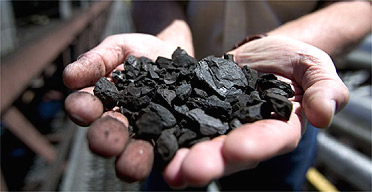Clean coal technology can mean several different things, but the most common definition is that instead of releasing CO2 into the air after burning coal, the carbon dioxide is stored underground.
ADVANTAGES
· Carbon dioxide is not immediately released into the atmosphere.
· Supplies of coal are available to us now.
DISADVANTAGES
· Carbon dioxide that is “hidden” could possibly leak into the atmosphere anyway or into our ground water, unless it is closely monitored!
· Major environmental problems result from mining the coal in the first place.
· Pollutants still exist, but just released in a different way.
This sounds like a similar problem I talked about with nuclear technology. The poisonous remnants of creating the energy still exist, we just hide them in a place that seems to be less harmful (for the time being.) Sounds like another temporary solution to a much bigger problem!

Did you know that the United States only has enough coal reserves to last us for the next 200 years? If coal is another limited resource, why spend so much money pretending to make it clean instead of investing in new technology that is actually clean?






No comments:
Post a Comment